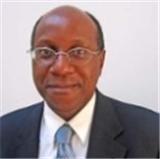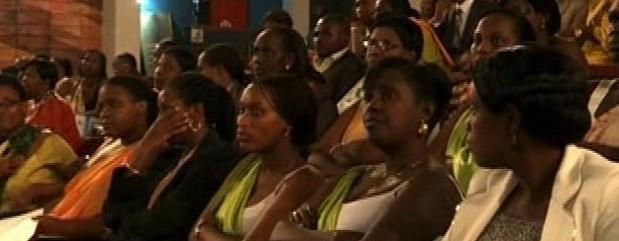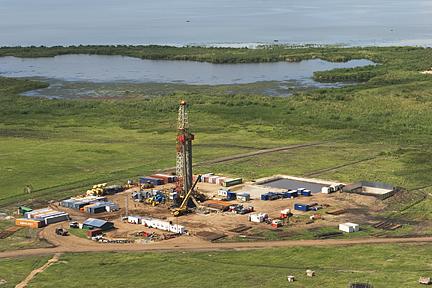Towards a Multi- Faith Common Agenda for African Development and the MDGs – By Knox Chitiyo and Lucy Mbugua

Could faith groups be a powerful driver in achieving the Millenium Development Goals (MDG’s) in Africa? Recent thinking and initiatives in Africa and within the wider African diaspora, certainly seem to indicate that faith groups can, and should, be seen as partners and/or drivers in pushing towards the 2015 MDG goals. The MDGS are particularly focused on the eradication of extreme poverty and hunger; achieving universal primary education, promoting gender equality, combating deadly diseases and improving maternal health. Continental and diaspora African faith groups, with their diverse constituencies and access to information and power networks, are uniquely placed to assist in fulfilling Africa and the African diaspora’s vision of development in the 21st Century.
By Knox Chitiyo and Lucy Mbugua
The idea of faith groups as catalysts for constructive change is not a new one; but it is an idea whose time may have come. Within Africa, there has been increasing debate and real-world initiatives on engaging the faith communities regarding a transformative development agenda. For example, the Inter- Faith Action for Peace in Africa [IFAPA] has, since 2002, been a focal point for a multi-faith dialogue which also engages key political and business decision makers on vital issues such as water security and conflict resolution – there have been a number of IFAPA summits which have also included national and regional decision – makers. Faith groups also play a major role in the African diaspora; the July 2011 “˜Communities of Faith; Agents of Change’ conference (hosted by the All Party Parliamentary Group for Africa) was both an affirmation of the importance of African diaspora multi faith g communities, and also a clarion call for better co-ordinated action for constructive change by the faith groups and policy makers.
Religion is a potent force in Africa and across the globe. Faith groups traditionally confine their ministrations to social interventions, but there is potential for religion and faith communities to play a deeper transformative role in upgrading or changing ineffective social/value systems; enhancing local best practice and capacity-building for development. Traditional religious emphasis on spirituality and rigour is important, but it needs to be allied to the real- world challenge of uplifting millions from poverty.
There are already a number of important development initiatives in Africa which are led by, or involve, faith groups. The issue, then, is not to create more faith groups or to attempt parallel initiatives; what is needed is greater co-ordination of faith groups in Africa with the African diaspora in a more integrated common agenda for African development. Africa and the diaspora have numerous faiths, including Islam, Christianity, African traditional religion, Judaism, Hinduism and Buddhism amongst others. Faith groups, with their eclectic traditions allied to powerful communications networks and value systems can, if harnessed properly, contribute meaningfully to change.
What might be the key items in a Multi Faith Common Agenda for African Development?
Co-operation: as mentioned above, if faith groups are to realise their potential for constructive change in Africa’s development they need to work together better. Currently faith groups in Africa and in the African diaspora are better known for competition and (often bitter) rivalries. Competition is part of the human condition, but recognising the importance of a shared agenda and mutuality is vital to articulate a mutual agenda for action.
Transnational Dialogue: there needs to be a stronger dialogue between diaspora African faith groups and continental African faith groups to assess how and how best they can collaborate. This dialogue (which is part of the wider dialogue between Africa and the African diaspora) has to recognise that although Africans in the diaspora and Africans on the continent do not have identical agendas, tradition, kinship, memory and the transnational economy means that there is at least enough shared purpose to make a joint dialogue not just feasible but essential.
International Policy makers and Faith Groups: there needs to be a heightened dialogue between national, regional, continental and international policy makers and African faith groups on Africa’s development agenda and the MDGs. In addition, the UK government – which has demonstrated a continued commitment to assisting Africa with the MDGs – needs to heighten its dialogue with African multi-faith groups in the UK and in Africa .In turn, faith groups need to articulate their position and programme for action on African development to the key UK and international policy makers. There is a strong case for consulting with, and including, faith groups as key partners in the UK’s Africa policy. It is also important that African governments, regional organisations and the AU also partner with continental and diaspora faith groups in the quest for development and peace- building in Africa.
Development in the Diaspora: there are common synergies between continental African and diaspora faith groups, but it is also true that there are differences in outlook and priorities. The priority must be on development and the MDGs in Africa; the contribution diaspora faith groups can make to development in the African diaspora is also vital. Although it is always risky to generalize, issues of poverty, health and education are also of concern in the diaspora and here faith groups can play a key role both in uplifting communities, and also at a higher policy level. There is also need to heighten inter- faith dialogue and interaction in an age of diverse faiths; and also to discuss the potential of a common platform between continental African, diaspora African, and Caribbean and Afro- American diasporas and faiths, perhaps under a development theme.
Transforming the Transformers: if faith groups are to become partners or agents of transformative development, then charity will have to begin at home; the faith groups may themselves have to undergo a process of reform and transformation. Faith groups already play a major and constructive role in enhancing social and national cohesion in Africa and elsewhere; but there are also some cultural practices and value systems which will have to change if faith groups are to achieve their potential in the 21st Century. A number of faith groups are dominated by pastor autocracies, who prioritise the accumulation of individual wealth at the expense of social upliftment. Other groups refuse to allow families to receive state health care and education. If the emphasis could shift to community development rather than wealth creation, then the better resourced faith groups could play a major role helping to build African capacity for poverty alleviation
The Role of Women:it will also be important to educate and encourage women as the drivers of positive transformation within the faith groups and as interlocutors between the faith groups and key policy makers on development and security. War and economic circumstances often force women to become heads of households in Africa and the diaspora, but women and children often suffer the most destructive effects of poverty and conflict, especially when, as is often the case, violence or poverty removes the menfolk from the family or community. Every day we see pictures of malnourished children, and people dying of hunger across Africa. Men, women and children all suffer in this kind of situation, but women in faith groups are well placed to towards greater security, disaster relief and poverty alleviation. Women can play a key part in a sustained engagement between the poor that have no voice, and development partners.
Religion and nation- building: in the wider context, dialogue with faith groups is an important part of much wider and deeper debates about multiculturalism, religion and secularism which are occurring in Western societies. For much of the previous decade, western governments saw religion as a tool in the controversial “˜War on Terror’, engaging faith communities can help to move the discourse on to the more constructive issue of development. In Africa, faith groups are also part of the discourse on using religion as a peace-building mechanism and also to build constitutionalism and democracy.
There are no simple answers, and there are many challenges regarding the role of faith groups in development. However, what is certain is that there are many opportunities and the time is ripe to engage with faith groups in a transformative agenda for development, peace-building and self –help.
Knox Chitiyo is Africa Fellow at the Royal United Services Institute (RUSI) and chair of the Britain-Zimbabwe Society. Lucy Mbugua is an activist with the Make Poverty History campaign and Black and Ethnic Minority representative for Micah Challenge.







[…] Towards A Multi-Faith Common Agenda For African Development And The MDGs (Knox Chitiyo and Lucy Mbugua, on African Arguments) […]